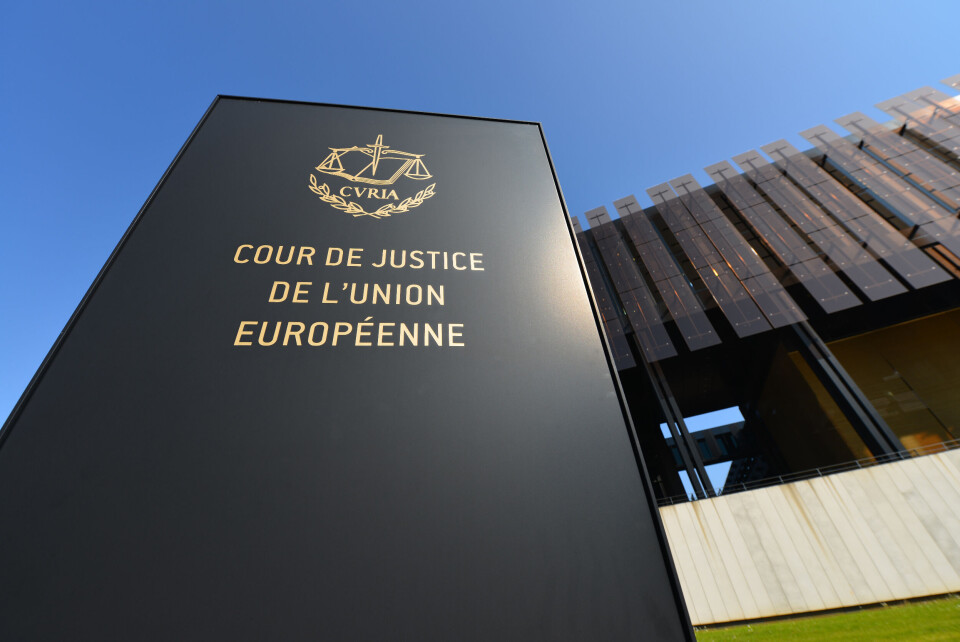-
Roadside noise cameras await approval to start issuing fines for loud vehicles in France
The devices known as meduses already exist in several cities but so far have only been ‘instructional’
-
White storks make strong return in France via nest ‘platforms’ and clipped wings
The Ligue pour la Protection des Oiseaux shares the conservation challenges in saving these birds from extinction
-
Hosting scheme in south-west France lets newcomers sample lifestyle
Households in nine Dordogne communes volunteer under Mes Nouveaux Voisins scheme
Fight goes on, says lawyer as court rejects case on Britons’ EU rights
The case argues that Brexit should not have led to automatic loss of Britons’ EU citizenship rights

One of the lawyers in a case seeking to maintain EU citizenship rights for Britons post-Brexit says the fight will go on – to the European Court of Human Rights – after a negative judgement today (June 9).
Read more: Official launch of French group for ‘British Europeans’
The European Court of Justice (ECJ) in Luxembourg ruled that Britons who do not also have an EU nationality have all lost their EU citizenship rights, whether or not they had moved to the EU before Brexit. “They didn’t want to question the Withdrawal Agreement treaty,” (which treats Britons post-Brexit as non-EU citizens) said Julien Fouchet.
Lawyers working on behalf of Alice Bouilliez, a retired British civil servant from the Gers, had argued that EU citizenship should be seen as a standalone status that is not automatically lost due to Brexit, especially if it associated loss of rights caused disproportionate harm to people’s lives.
They pointed to, among other Brexit effects, the fact that Mrs Bouilliez was unable to vote in 2020’s municipal elections in France. She initially took her case to the court of Auch, Gers, which referred it to the ECJ.
Today’s negative ruling broadly follows the (non-binding) view set out earlier this year by the court’s advocate general.
Read more: Setback for Briton fighting to retain Britons’ EU rights post Brexit
Mr Fouchet, of Corneille-Fouchet-Manetti avocats in Paris and Bordeaux, said the case would now go back to the Auch court, which is expected to follow the ECJ’s view.
They expect to then apply to France’s highest appeal court, the Cour de Cassation (which is also expected to maintain the ECJ’s view), and then finally the European Court of Human Rights in Strasbourg around the end of this year.
“It’s a real blow,” Mr Fouchet said. “What shocks me is that many Britons were not even able to vote against Brexit due to having been out of the UK for more than 15 years and having lost their UK voting rights.
“And today, they no longer have any voting rights. That doesn’t shock the court, but it shocks me. It is a blow to democracy and fundamental European values.
“They can no longer vote in parliamentary elections in the UK, or municipal or EU elections in France, and the intended removal of the ‘15-year-rule’ [recently voted for by the UK parliament] will not be in force before 2024, which means from 2020 to 2024 they will have been completely deprived of democratic rights.
“The court hasn’t defended human rights and I am very disappointed. I think the decision is political.
“Even without harming the Withdrawal Agreement they could have interpreted it to say that at least Britons in the EU should have been able to vote in the 2020 municipal elections [during the Brexit transition period] and that an error was made. But they didn’t even go that far. They refused to give anything.”
In parallel, Mr Fouchet is also involved in a similar case for the EU Britizens association of which Mrs Bouilliez is president, which received an unfavourable ruling from the Conseil d’Etat in March. This case was based on questioning a French decree on Britons’ post-Brexit rights, which had also treated them as having lost their EU rights.
He will apply to the European Court of Justice this summer in regard to that case, he said.
The EU Britizens association helps organise support for both cases, which are being run on a pro bono basis. More information can be found here.
Previous articles
16 judges lined up to rule on Britons’ loss of EU citizenship
























